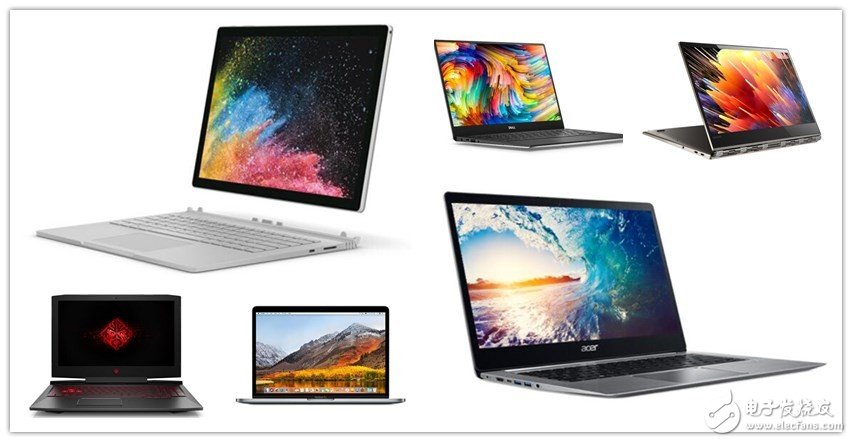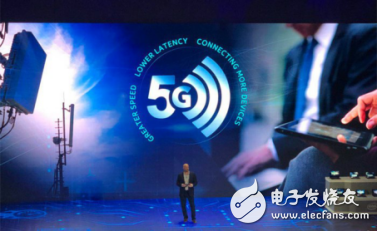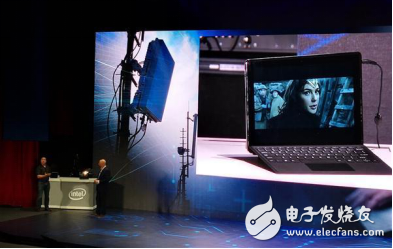The two major bottlenecks in the global PC's continued decline need to be resolved
Since the birth of the world's first general-purpose computer "ENIAC" in 1946, electronic computers have been developed for more than 70 years. From the initial behemoths, to desktops with separate components, to more convenient all-in-ones and thinner laptops, PDAs, and tablets, the technology of electronic computers has grown brilliantly, but it has also entered a bottleneck.
The development dilemma of PC is mainly manifested in two aspects. The first is the lack of innovation and selling point. From the global PC product situation in 2018, whether it is HP Shadow Elf 4th generation, Lenovo Yoga 920, Dell XPS 15, Acer Hummingbird Swift 5, Apple MacBook Pro, Microsoft Surface Book2, or other brands of PC products, are not presented A new form or concept has become less attractive to consumers. To some extent, since the first computer was built, the electronic computer was still changing, and the structure has never changed in 70 years.

Secondly, from the perspective of market reaction, with the popularity of smart phones and smart wear in recent years, most consumers prefer the interactive office entertainment of finger interaction, and the PC market share is madly squeezed by these emerging mobile computing devices.
Data show that since 2012, global PC shipments have fallen for the sixth consecutive year. The total global PC shipments for 2017 totaled 262.5 million units, down 2.8% from 2016's 270.1 million units. This is in stark contrast to the peak data of 352.8 million units in 2011. In the five years from 2012 to 2017, it was the golden development period of mobile computing devices such as smart phones and smart wearers.
Intel: Intimate marriage between 5G technology and traditional PC
How to break the "bottleneck curse" of the PC industry? A new path to reshape PC value? On June 5, 2018, at the 2018 Computex TAIPEI 2018, Intel and US carrier Sprint announced that they would launch a 5G computer that uses 5G to provide a continuous network, or 5G, in 2019.

As the leader of the CPU, Intel has generously acknowledged its ambitions in the 5G field. At the computer show in Taipei, Intel specially arranged the 5G infrastructure exhibition area to let the audience feel the high-efficiency performance of 5G networking.
In a subsequent keynote speech, Intel invited US operator Sprint to "station" for its "5-station" process, announcing that Sprint is expected to begin offering mobile 5G services in the first half of 2019 and will sell it in its global stores. 5G computer based on Intel processor.
Intel also revealed that the first batch of 5G computer equipment will be jointly developed by leading PC manufacturers such as Acer, Asus, Dell, Hewlett-Packard, Lenovo and Microsoft, and the specific models are 5G laptops and 2-in-1 computers.
Surprisingly, Intel also demonstrated the world's first notebook engineering prototype equipped with 5G communication module, and used 5G network to stream and play 4K HD movies for notebooks, which is extremely fast and smooth.

4G computer has achieved results and expects the arrival of 5G computer
5G is a mobile phone network, not a computer network. Why does Intel want to combine the two? Intel explained that 5G technology provides ultra-large bandwidth for mobile communications. Compared with 4G, 5G networks can support more than 100 times of devices, and the transmission speed and capacity are not only faster, but also higher, and the safety factor is higher. Therefore, Intel hopes that its 5G applications will start from smartphones and extend to more areas.
In Intel's view, laptops will be one of the easier hardware to support 5G communications because it provides more space for 5G chips and longer battery life. This is a hardware environment that smartphones cannot give.
Moreover, there are already more than 20 4G computers on the market. These PC products that can connect to 4G networks can completely solve the constraints of cable network and wireless network instability, and have been recognized by the consumer market. In the future, I believe that under the blessing of 5G communication, 5G computers will reopen the gap in the consumer market and activate the new engine of the PC industry.
We cover many types of Connectors for industrial, electrical and automotive, such as IP68 and waterproof connectors, OBD diagnostic connectors, also the standard or custom-designed power connectors for MINI FIT, MICRO FIT, MATE-N-LOCK.
Connectors System,Board System Connector,Efi System Injector Connector,Efi System Car Connector
ETOP WIREHARNESS LIMITED , https://www.oemmoldedcables.com